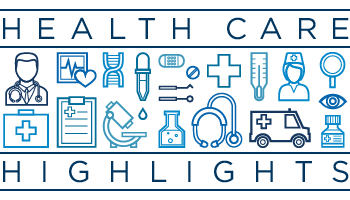Recent OIG Report Could Result in a Revamp & Refocus of Georgia’s Nursing Facility Survey Process
Background
On September 7, 2023, the U.S. Department of Health and Human Services, Office of Inspector General (OIG) issued a report expressing concerns about life safety, emergency preparedness, and infection control compliance in Georgia nursing facilities.
This report stemmed from an audit of 20 nursing facilities in which the OIG conducted onsite inspections to determine if the selected facilities complied with Federal requirements for life safety, emergency preparedness, and infection control.
OIG Findings & Recommendations
The OIG found deficiencies related to life safety, emergency preparedness, or infection control in 19 of the 20 nursing facilities audited, with a total of 155 deficiencies.
Specifically, there were 71 deficiencies related to life safety (building exits, fire barriers, fire detection and suppression systems, hazardous storage areas, smoking policies, fire drills, and electrical equipment); 66 deficiencies related to emergency preparedness (emergency supplies and power, plans for evacuation, sheltering in place, tracking residents and staff during an emergency, emergency communication plans, and emergency preparedness plan training and testing); and 18 deficiencies related to infection control (Infection Prevention and Control Programs, influenza and pneumococcal immunizations, Covid-19 immunizations, and Covid-19 testing).
Notably, the OIG found these deficiencies occurred due to frequent management and staff turnover at the facilities, contributing to “lack of awareness of or failure to address” the Federal requirements. The OIG also found Georgia had limited resources to conduct surveys of all skilled nursing facilities as required by the Centers for Medicare and Medicaid Services (CMS).
As a result of these findings, the OIG recommended that the Georgia Department of Community Health, Healthcare Facility Regulation Division (HFRD) take the following actions:
- Follow up with the 19 nursing facilities that demonstrated life safety, emergency preparedness, and infection control deficiencies to ensure they have taken corrective action.
- Work with CMS to create a risk-based approach to identify which nursing facilities require surveys more frequently than once every 15 months, such as those with a history of multiple high-risk deficiencies or frequent management turnover.
- Collaborate with CMS to acquire additional resources to implement more frequent surveys using the risk-based approach.
- Work with CMS to develop standardized life training for nursing facility employees.
Potential Implications
The OIG’s recommendations are likely to impact Georgia skilled nursing facilities in several ways.
First, the HFRD is likely to conduct more frequent or regular surveys of Georgia nursing facilities. Second, while the details of facility selection are unclear, certain facilities with a history of adverse events or quality issues, including those in the CMS Special Focus Facility Program, may be subject to increased focus and criticism from state surveyors.
Finally and importantly, nursing homes may be subject to increased scrutiny under the survey process to ensure they are complying with life safety, emergency preparedness, and infection control standards.
If you need assistance preparing for these upcoming revamped and refocused surveys, or defending against purported deficiencies, please reach out to our Aging Services and Health Care teams.
Disclaimer
This material is provided for informational purposes only. It is not intended to constitute legal advice nor does it create a client-lawyer relationship between Hall Booth Smith, P.C. and any recipient. Recipients should consult with counsel before taking any actions based on the information contained within this material. This material may be considered attorney advertising in some jurisdictions. Prior results do not guarantee a similar outcome.
Blog Overview
About the Authors

Atlanta Partner Brittany H. Cone focuses her practice on a wide range of regulatory, administrative, and litigation matters in health care. Certified in Health Care Compliance by the Health Care Compliance Association, she works with providers on the full spectrum of issues they face including Medicare, Medicaid, regulatory compliance, administrative hearings, and appeals.

Atlanta Partner Jordan Johnson specializes in aging services and health care matters. His practice features a wide range of regulatory, administrative, and litigation matters, including the full spectrum of issues healthcare providers face such as reimbursement, regulatory compliance, and administrative hearings and appeals.

Atlanta Law Clerk Caylie Cross works primarily on aging services and health care matters. She recently earned her Juris Doctor from Emory University School of Law. Caylie previously worked as a summer associate for the Atlanta office and has also interned at both the Atlanta Legal Aid Society and Rhode Island Center for Justice.



Leave a comment
You must be logged in to post a comment.